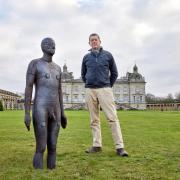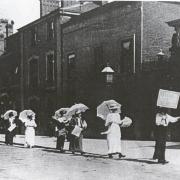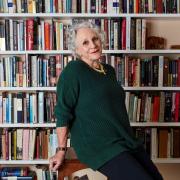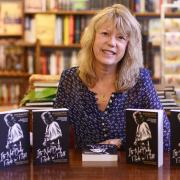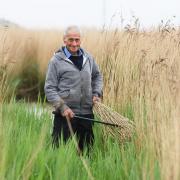Norfolk is renowned for doing different – but what if key moments really had been different? Author Trevor Heaton changes the course of history in a fascinating new book, writes Rowan Mantell
What if . . . Boudica had won, Nelson had died young, Norwich Cathedral was destroyed in the Blitz or one of the biggest cities in Britain sprawled where the waters of the Wash now lap?
Just tiny tweaks in the events of history, a slash of a sword in the chaos of battle, a young man’s decision to volunteer for one last mission, could have changed the world. This is the intriguing premise of Turning Points, The Might-Have-Beens of Norfolk History, by Trevor Heaton. The Norfolk author takes 26 moments in history and imagines what might have happened if just one decision or action had been different.
“Once I got the idea, I couldn’t not do it,” says Trevor.
Beginning with Boudica and travelling through an alternative Norfolk all the way to the 20th century, Trevor changes our religion, our heroes and even our landscape.
“I’m not going into the realms of science fiction. Things seem inevitable in history but not at the time they are happening. History is flexible,” he says.
His favourite turning point involves the Spanish Armada and the old rhyme: “He who would old England win, must at Weybourne Hoop begin.”
“Weybourne is so important because there is an area of deep water that comes right up to the coast,” explains Trevor.
There were elaborate plans to repel the Spanish, who already held vast expanses of land in Europe, America, Africa and Asia. The actual Armada of 1588 was weakened in battle, and then defeated by storms, but what if the wind had veered and blown the ships to Norfolk? Thousands of Spanish fighters would have rowed ashore and Norfolk’s Roman Catholic gentry might well have welcomed them.
“Pragmatic Norfolk people who had carefully secreted their rosary beads would now be fetching them from their hiding places,” writes Trevor. “England could have collapsed within a week.”
In the 1960s there were plans to drain the Wash, Holland-style, and build a huge city with homes for of 750,000 people, a Stansted-scale airport and Felixstowe-scale container port. The whole region would have developed differently.
Another turning point was the night in June 1942 when the Baedeker raids were making a quarter of the population of Norwich temporarily homeless. The Cathedral emerged virtually unscathed from the devastating Baedeker raids, but our 21st century skyline could have been very different without surveyor Arthur Whittingham. Hundreds of incendiary bombs started fires which might have destroyed the cathedral if he had not stationed buckets of water and sandbags throughout the medieval masterpiece, allowing teams of volunteers to beat back the flames.
In another chapter Trevor explores the spark of a revolutionary idea catching light and helping political freedoms spread around the world. Thetford’s Thomas Paine was just 19 when he decided to leave the town and seek his fortune. “He was about to join a privateer called The Terrible, under Captain William Death, when his father caught up with him and ordered him home,” says Trevor. The Terrible sailed without him and just 17 of the 150 men aboard survived a battle with a French ship. The American Revolution would have happened without Paine but it would not have created the United States of America – the name dreamed up by Paine.
Modern American politics were also affected by another young man and another decision made in Norfolk. “I think the most tragic of all of these counterfactual ideas was what happened to John F Kennedy’s elder brother, Joseph Patrick Kennedy. Joseph was the one being groomed for a political career. He was tall and handsome and photogenic and charismatic. Women loved him, men admired him, he was like JFK, only more so.” He flew bombers and should have been heading home after many successful missions when volunteered for one last flight from RAF Fersfield near Diss. It turned out to be a terrible mistake.
Turning Points is Trevor’s 11th book and his carefully researched and cleverly written might-have-beens become exhilarating excursions to a Norfolk, and world, that history only just missed.








